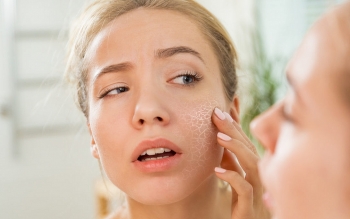How to cope with night shifts: Useful tips
 |
| Photo: CareerAddict.com |
What times and What are night shifts?
The night shift – also known as the third shift – is usually a shift that goes after midnight, such as an 11 p.m. to 7 a.m. shift, or a 5 p.m. to 2 a.m. shift.
Night shifts are a necessary part of healthcare. In any hospital or inpatient facility, activity slows at night, but nursing care continues around the clock. Frequently new employees will begin and remain on the night shift until a position on the day shift opens. Some facilities require rotating shifts or schedule staff to fill in for night staff vacations.
Many of the duties remain the same as during the day shift, yet fatigue can make the tasks seem harder. The human brain tells us to slow down and sleep when it’s dark. It releases hormones that keep our internal “clocks” on schedule, so that we’ll be alert during the day. Staying awake all night confuses both the brain and the body.
The key to not just surviving, but thriving on the night shift is to get adequate rest. Sleeping well during the day is essential.
How to cope with night shifts?
Plan a sleep schedule
It is important to establish a sleep routine, and to stick to that routine even on days you aren’t working evenings. Initially, try different patterns of work and sleep to see what works best for you. For example, if working nights, consider staying awake when you first get home after work, and sleep later in the day awakening right before next evening shift. Alternatively, you may find sleeping a few hours in the morning when you first get home, and then a few hours later in the day, right before the next shift more conducive to your schedule. - Noted by sleepfoundation.org.
Be careful with caffeine
Having a caffeinated drink before you begin your shift or earlier on into the night can help keep you alert and focused. But try to avoid drinking coffee, tea or fizzy drinks that contain caffeine later on in your shift, as they can make it difficult for you to fall asleep when you get home – thereby interrupting your sleep cycle. - According to nursingtimes.net.
Take a nap
Take a 45-minute nap during your break to help you feel refreshed and to restore brainpower.. Taking a nap can become an essential element of working safely overnight. While a short nap before you start your shift can help to combat fatigue, a nap during your break may be vital for maintaining alertness and remaining vigilant.
Your night shift naps should not exceed 45 minutes. Sleep is comprised of different stages, which complete in cycles of between 90 and 100 minutes. One sleep cycle runs from light sleep to deep sleep.
Eat a good “breakfast” before work
Do make sure you make the time and headspace for Post-Nights Breakfast. Critical Care rosters lend themselves to this and I’d argue that in any teams that do a round of nights together, this is an incredibly useful space to wind down; congratulate one another and reflect on ways to improve. I make a point of having a debrief, called “The Ceremonial Airing of Grievances”. Homer (Simpson) has a lot to teach us. Venting prevents explosion. Use the formal positive critique/Pendleton’s model/the “hashtag rant” – just make sure everyone on the team can identify any painful experiences, reflect on how awesome they are; and work out how to be more awesomer next time. (From litfl.com)
 |
| Photo: Kupinica.com |
Lighting is important
To “fool” the brain, you’ll need a source of light during the shift. Most facilities dim the lights at night so patients and residents can sleep. Try and keep lights turned up at the nursing station and break room. However, on your way home you should put on sunglasses to reduce direct daylight, which can stimulate your brain.
Keep busy all night
Traditionally, the night shift has some responsibilities that support the busier day shift. Folding linens, stocking supplies, cleaning work areas, wiping wheelchairs, and assisting the early-risers are some of the duties. It’s a good idea to bring something to do for slow nights. A book or magazine, Sudoku puzzles, or simple knitting—activities that can quickly be set aside to help a resident—can keep the brain occupied.
Get to know your co-workers
Time goes more quickly when you’re engaged with others. Help each other out; with fewer resources than during the day, you’ll get creative when a new glitch pops up. You’ll also have a chance to get to know each other; lifelong friendships develop on the night shift.
Create a community of support
Working nights can be stressful on you, as well as your family and friends. When you’re on the opposite schedule from others, it takes awhile for them to realize that because you’re “home” during the day doesn’t mean that you are available. You need sleep. Remind them not to call unless there is an emergency. Specify certain times for communication. Use notes and bulletin boards to post updates. Plan family time and “date nights” for your days off.
See a doctor if nothing works
| Do not use alcohol for sleep; it may seem to get you to sleep, but it can actually keep you awake as it metabolizes. Melatonin supplements or over-the-counter sleep aids, available at drug stores and pharmacies, can be useful. However, if you find you need to take something on a regular basis, it’s time to get help. Before using sleeping pills, make an appointment with your primary care provider. He or she can evaluate your overall health, including other possible sleep conditions, such as sleep apnea or restless leg syndrome. |
 | 5 Tips to Whiten your Teeth Naturally at Home How to whiten your teeth: Teeth inevitably begin to yellow with age, but a range of strategies can slow the process and even reverse it ... |
 | Useful Tips To Maintain A Healthy Lifestyle Maintaining a healthy lifestyle is an important key to a happy life. Everyone already knows this, but very few people actually take the steps that ... |
 | TIPS to prevent and care for dry skin in Winter Treatment dry skin at home: Winter and skin are not the best of friends. As the temperatures continue to drop, the dry environment and lack ... |
 | What is Acne: Causes, Tips and treatment at home What is Acne: Embarrassing blemishes can hit everyone - from eighth graders to engineers. While acne is not aYserious health threat, it is significant ... |


























